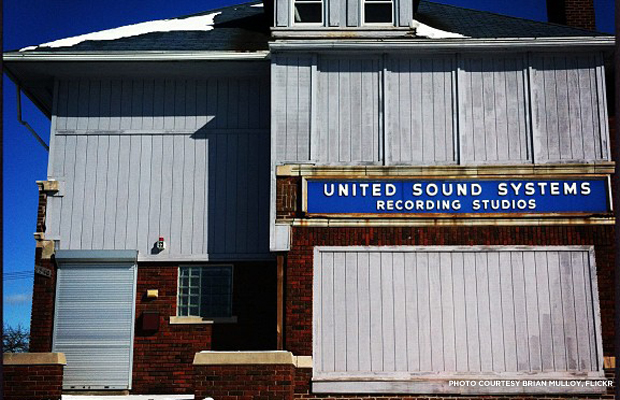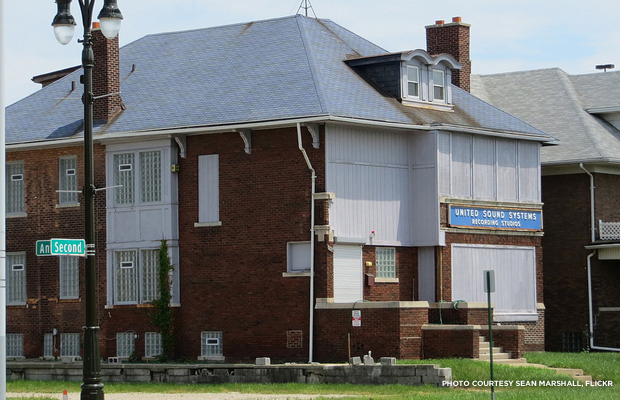
The United Sound System Recording Studios and its long music history may be leveled or be forced to relocate to make way for the I-94.
United Sound System: it's where Detroit got its Motown sound. One of the first independent recording studios in the U.S., United Sound was where Berry Gordy Jr. first produced his Motown record and Aretha Franklin recorded the vocals to "Freeway of Love."
Ironically, today a freeway -- an expansion of the I-94 -- threatens the legendary music house.
Founded in 1933, then moved to its present location in 1940, United Sound was Detroit's first major recording studio. The studio was co-founded by Jimmy Syracuse and Bernard Besman. With Studio A at the back and Studio B in front, over the years artists from John Lee Hooker, Miles Davis, and the Red Hot Chili Peppers recorded within those walls.
The Michigan Department of Transportation (MDOT) has preliminary plans to use the site for an off-ramp as part of a 6.7-mile reconstruction and expansion of the I-94. "This portion of I-94 was constructed between 1947 and 1958 and has never been rebuilt," states MDOT spokesperson Rob Morosi. "The age, condition and economic importance has this project rated as the highest priority for the Michigan Department of Transportation, so we are doing what we can to accelerate."
"From the study we commissioned through a consultant, the Sound System building would be impacted by modernizing the I-94/M-10 interchange," Morosi confirms.
"The studio is significant for the musical contributions made there by some of the most influential, African-American artists of the jazz and Motown eras," the MDOT Final Environmental Impact Statement (FEIS) states.
And that history still resonates today. Back in 1959, Gordy bought some studio time to cut his very first Motown record. It was Marv Johnson's "Come to Me," the first release for what became known as Motown. Gordy then purchased and moved to a different site, Hitsville U.S.A., a year later.
But the United Sound continued to make music. In 1971, Don Davis bought the property to produce more records. And after a period of neglect in the '90s, United Sound was again resurrected in 2004. However, upkeep proved too costly. The studio, which remains a private property, hasn't been used regularly in years. But though the windows are now boarded up, the echo of soul and Motown still reverberates.
"We met with the owner of the United Sound System building in July," says Morosi. "At the meeting the owner indicated that she is open to different options, including moving the building. As part of the project, we could conceivably move the structure to a new location at our cost, if the owner is willing to do so."

The Detroit Sound Conservancy, a nonprofit aiming to preserve the city's music history, formed the Detroit Sound Historical Landmarks Committee to advocate alternatives to save United Sound System. In a sign of hope, the MDOT FEIS notes that the building meets the criteria for National Register of Historic Places listing.
"The Sound Conservancy has worked very hard to get all the groups together -- the owner, the City of Detroit, the Michigan Historical Preservation Network, MSHDA -- to preserve Detroit's musical, built heritage," says the Conservancy's founder, Carleton Gholz. "The biggest win is that we're even having a discussion about this. Before, there wasn't much going on in terms of preservation -- it was off the grid. Now they're all talking together about United Sound because of our efforts."
"Detroit music has so much history," Gholz says. "If we can save United Sound, we can probably save a lot more."
The MDOT is still currently working to fit the $1.8 billion project into their financial program. "The earliest construction would begin in 2016 but that is not set in stone," Morosi states. "At this time, there are no further developments. The owner is weighing her options."
As so many other Detroit landmarks slowly decay, one hopes United Sound can keep the record playing.
